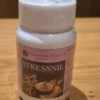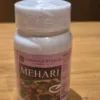Vasa
|
Botanical Name |
Adhathoda Vasica |
|
Family |
Acanthaceae |
|
Sanskrit |
Atarusha, Bhisagatma, Vasika, Vrsha |
|
English |
Malabar Nut |
|
Hindi |
Adusa |
|
Kannada |
Adasoge |
|
Malayalam |
Adalodakam |
|
Telugu |
Addasaramu |
|
Tamil |
Eidhadad |
|
Marathi |
Adulsa |
Distribution
Found throughout india.
|
Parts Used |
Leaf, Root, Flowers |
|
Dose |
Leaf Juice: 10-20ml, Root Decoction:40-80ml, Flower Juice:10-20ml |
Chemical Constituents
Vasicine, vasicinine, ß sitosterole, adathodine, luteolin, adathodic acid, carotene, vit c etc.
Ayurvedic Properties
|
Quality (Guna) |
Laghu, Ruksha |
|
Taste (Rasa) |
Tikta, Kashaya |
|
Metabolism (Vipaka) |
Katu |
|
Potency (Virya) |
Sita |
|
Impact (Prabhava) |
Hrdya, Svarya |
Pharmacological Action
- Kaphapithahara: so helpful in bronchitis,cough etc
- Hrdya: it is cardio protective
- Svarya: helpful in sore throat.
- Rasayana- used to improve immunity.
- Kasa, swasahara: its broncho dilatory property helps in the curing of the same.
- Kushtaghna: its kashaya tikta rasa helps in curing skin diseases.
- Raktapitha and other bleeding disorders: its kaphapithahara and grahi property helps in arresting bleeding disorders.
Therapeutic Uses
- Rasayana: oil prepared with root decoction of vasa will be useful.
- Raktapitha: powder of vasa flowers should be given with honey.
- Sthoulya: vasa leaf juice is mixed with sankha churna or leaf juice of bilwa will be useful.
- Dry cough: powder of haridra cooked with vasa juice along with fatty layer of milk helps in alleviation.
- Jaundice: juice of vasa with honey.
Some of the common formulations
- Vasavalehya
- Vasarishta
- Vasa kantakari lehya
- Vasadya ghrita
- Vasamuladi taila




